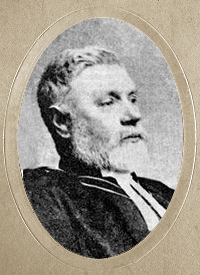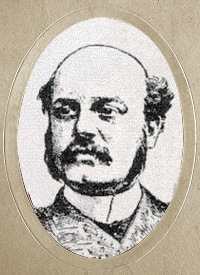O Love That Will Not Let Me Go
BIBLE REFERENCE:
Now he which stablisheth us with you in Christ, and hath anointed us, is God; Who hath
also sealed us, and given the earnest of the Spirit in our hearts.
2 Corinthians 1:21-22
In whom ye also trusted, after that ye heard the word of truth, the gospel of your salvation:
in whom also after that ye believed, ye were sealed with that holy Spirit of promise,
Which is the earnest of our inheritance until the redemption of the purchased possession,
unto the praise of his glory.
Ephesians 1:13-14
Let no corrupt communication proceed out of your mouth, but that which is good to the use of edifying,
that it may minister grace unto the hearers. And grieve not the holy Spirit of God, whereby ye are sealed unto the day of redemption.
Ephesians 4:29-30
And it was commanded them that they should not hurt the grass of the earth, neither any green thing, neither any tree; but only those men which have not the seal of God in their foreheads.
Revelation 9:4
Trust ye in the LORD for ever: for in the LORD JEHOVAH is everlasting strength:
Isaiah 26:4
George Matheson -
Lyrics
1842-1906
Born: March 27, 1842, Glasgow, Scotland.
Died: August 28, 1906, Avenell House,
North Berwick, Edinburgh, Scotland.
Buried: Family vault, Glasgow Necropolis.
Albert Peace -
Composer
1844-1912
Born: January 26, 1844, Huddersfield, England.
Died: March 14, 1912, Liverpool, England.
Buried: St. Mary’s Church, Sefton, Merseyside, England.
HYMN HISTORY:
This hymn is considered to be one of the best-loved hymns written during the last part of the nineteenth century.
The text of this beautiful hymn is even more remarkable when we become aware of the fact that it was authored by a man who was totally blind and who describes
the writing as the “fruit of much mental suffering.”
Born in Glasgow, Scotland, March 27, 1842, George Matheson who was born with only partial vision. His sight failed rapidly after he entered Glasgow University,
and became totally blind at the age of eighteen. Despite this handicap he was a brilliant scholar and finished the University and the Seminary of the Church of
Scotland with very high honors. In 1886 he became pastor of the 2,000 member St. Bernard's Parish Church in Edinburgh. He went on to become one of Scotland's
outstanding preachers and pastors, greatly highly esteemed in Edinburgh, where his eloquent preaching consistently attracted large crowds. Matheson never married,
but throughout his fruitful ministry he was aided by a devoted sister, who decide to learn Greek, Latin, and Hebrew in order to help him in his theological studies.
She was his faithful helper and co-worker throughout his life, assisting in his ministry and many pastoral duties.
It is believed that heavy mental distress prompted the author to write this text. A very popular account, is that this text was an outpouring from the heart of
Matheson after his fiancée left him just before their marriage when she learned of his impending total blindness. There are many significant hints in this hymn
reflecting a broken and saddened heart, such as the “flickering torch” and “borrowed ray” in the second stanza, the tracing of the “rainbow through the rain”
in the third stanza, as well as the “cross” in the last verse. Fortunately, Dr. Matheson did leave an account of his writing of this hymn:
"My hymn was composed in the manse of Innellan on the evening of the 6th of June, 1882.
I was at that time alone. It was the day of my sister’s marriage, and the rest of the family were staying overnight in Glasgow. Something happened to me, which was known only to myself,
and which caused me the most severe mental suffering. The hymn was the fruit of that suffering. It was the quickest bit of work I ever did in my life. I had the impression
rather of having it dictated to me by some inward voice than of working it out myself. I am quite sure that the whole work was completed in five minutes, and equally sure
it never received at my hands any retouching or correction. I Have no natural gift of rhythm. All the other verses I have ever written are manufactured articles;
this came like a dayspring from on high. I have never been able to gain once more the same fervor in verse."
This hymn first appeared in the Church of Scotland monthly magazine 'Life and Work' in January, 1883.
The tune was composed one year later by a prominent Scotch organist and composer of his day, Albert L. Peace. Albert was requested by the Scottish Hymnal Committee
to write a tune especially for Matheson’s text. Albert's own account of the writing of this fine tune is as follows:
"After reading it over carefully, I wrote the music straight off, and may say that the ink
of the first note was hardly dry when I had finished the tune."
The later years of Matheson’s life were spent in writing some of the finest devotional
literature in the English language, including Moments on the Mount, Voice of the Spirit, and Rests by the River. Although this is the only hymn found in most evangelical hymnals,
Matheson wrote a number of other fine hymns, including a very thoughtful text entitled “Make Me a Captive Lord, and Then I Shall Be Free.”
Dear Brothers and Sisters in Christ,
The major themes in the four stanzas of “O Love, That Wilt Not Let Me Go” are - Love, Light, Joy and Cross. These words have been described as the total fulfillment for
any believer whose life is totally committed to the will of God. One could ponder an eternity of the depth and personal significance of these four expressions.
»» Love.
»» Light.
»» Joy.
»» Cross.
|
If any man love God he is known of Him
- But if any man love God, the same is known of him.
1 Corinthians 8:3
We can have the Love of Christ
- As the Father hath loved me, so have I loved you: continue ye in my love.
John 15:9
We are to keep His Commandments and abide in Christ Love
- If ye keep my commandments, ye shall abide in my love;
even as I have kept my Father's commandments, and abide in his love.
John 15:10
God is the only source of Light
- Every good gift and every perfect gift is from above, and cometh down from the
Father of lights, with whom is no variableness, neither shadow of turning.
James 1:17
The purity of God is shown in Light
- This then is the message which we have heard of him, and declare unto you,
that God is light, and in him is no darkness at all.
1 John 1:5
The wisdom of God is revealed with Light
- He revealeth the deep and secret things: he knoweth what is in the darkness,
and the light dwelleth with him.
Daniel 2:22
We receive guidance from God through His Light
- For with thee is the fountain of life: in thy light shall we see light.
Psalms 36:9
Rejoice in GOD
- Yet I will rejoice in the LORD, I will joy in the God of my salvation.
Habakkuk 3:18
Rejoice in CHRIST
- And not only so, but we also joy in God through our Lord Jesus Christ, by whom we have now
received the atonement.
Romans 5:11
Rejoice in the HOLY SPIRIT
- For the kingdom of God is not meat and drink; but righteousness, and peace,
and joy in the Holy Ghost.
Romans 14:17
Jesus Christ bore the sins of the world and died upon a Cross at Calvary
-
And he bearing his cross went forth into a place
called the place of a skull, which is called in the Hebrew Golgotha: Where they crucified him, and two other with him,
on either side one, and Jesus in the midst.
John 19:17-18
For the preaching of the cross is to them that perish foolishness
- For the preaching of the cross is to them that perish foolishness;
but unto us which are saved it is the power of God. For it is written, I will destroy the wisdom of the wise, and will bring to nothing
the understanding of the prudent.
1 Corinthians 1:18-19
We are to take up his cross daily and follow Him
- And he said to them all, If any man will come after me, let him deny himself,
and take up his cross daily, and follow me. For whosoever will save his life shall lose it: but whosoever will lose his life for my sake,
the same shall save it. For what is a man advantaged, if he gain the whole world, and lose himself, or be cast away?
Luke 9:23-25
The LORD preserveth all them that love him: but all the wicked will he destroy.
Psalms 145:20
A Hymn and its History is a ministry that depends solely upon the Lord for his guidance, it is
distributed free as a ministry of HymnalAccompanist.com. Please help us to continue to
touch lives and bring blessings to many others 24 hours a day all over the world.
If you have been blessed by this Ministry please give a donation as the Lord
lays it upon your heart, and share in the Blessings. By investing in the
lives of others you will reap benefits that will last for all eternity.
|
______________________________________________________________________________________________________
______________________________________________________________________________________________________
______________________________________________________________________________________________________
______________________________________________________________________________________________________
______________________________________________________________________________________________________




